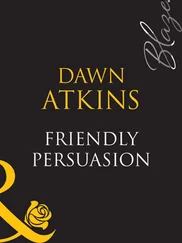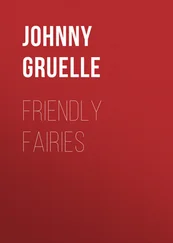"So why don't you send them what you found? It's so simple."
"It could be simple," the Ugandan says, "but it is not. Because there is a strict ban upon removing what we find from the country without the permission of the government."
"Why?"
"Because these fossils are considered a national treasure."
"Monkey bones?"
"Of course, madam." His face darkens and his voice becomes tense. Even the bones of apes millions of years old are a national treasure of the first order, and when a great anthropological museum is built in Tanzania or a neighboring African country, it will include a place of honor for the findings of this research team. In Africa they do not have artistic masterpieces, nor historical memories of ancient battles and wars that changed the face of the earth, nor writers and thinkers whose works have become classics, and yet, humanity originated in Africa, so why should they not take pride in what they have given to the world? If humanity still matters.
Now she feels embarrassed by what she said in haste and nods with enthusiasm.
And he continues to explain that when findings are sent outside Africa, there is a need not only for special permission but also for insurance and guarantees that everything will be returned intact, and thus the cost of such a shipment is beyond their ability to pay, not to mention having to navigate the long and complex bureaucratic procedures. There is a concern that if bones like these begin to travel the world, scientists will not come to Africa from far and wide to inspect them closely. In Ethiopia recently, the signature of the president himself was required to ship the jawbone of a chimpanzee for examination in France.
"It's that bad?"
"It's that bad." He rises from the stool and begins to pace about the room, lost in thought, as the moment arrives to unveil his question.
"Are you perhaps familiar with an institute in Israel called Abu Kabir?"
"Abu Kabir?" She is surprised to hear the well-known name on the lips of the black man. "Of course… it's our main pathology institute."
"An Arab institute?"
"Why, no," she corrects him, "this is an Israeli institute where all are equal, Jews and Arabs, and the Arab name is left over from some village that was maybe there once and destroyed in a war. But it's in Tel Aviv."
The Ugandan closes his eyes for a moment.
"Abu Kabir, meaning Father of the Great One: a beautiful, strong name for an institute of pathology."
"A beautiful name?" She is taken aback. "For us it's a name that arouses great fear. This is where they identify the bodies of victims of terrorist attacks."
"So it is also explained on the institute's Web site. But apparently because of the many victims you have, Abu Kabir has developed into a very advanced and sophisticated institute, which supports scientific research involving identification from the past as well."
"That could be," Daniela says, crossing her arms and hugging her shoulders, "but I wouldn't dare go near there, not even to its Web site."
"And we asked ourselves," says Dr. Kukiriza, ignoring her response, "if we might take advantage of your return tomorrow to send a few findings to Abu Kabir for analysis."
"What findings?"
"Bones. Three little bones that weigh next to nothing, no more than twelve centimeters in length."
"And you want me to bring these to Abu Kabir to pose them a riddle: Who is the deceased?"
"In our opinion, these are bones of our prehistoric ape, Australopithecus afarensis. You have already had the chance to feel them. They are clean and odorless. Dry bones, but not fragile ones, which will not take up much room in your suitcase. We have already been in e-mail contact with a researcher at Abu Kabir, Professor Perlman, and she has agreed to accept them for testing."
And now that his wish has finally been expressed, he peers with fiery eyes and heightened expectation at Daniela, who remains uncomprehending.
"But if, as you say, bones like these are national property, don't I need official approval to take them with me?"
"Yes," the archaeologist admits candidly, "approval is necessary." But as he has just explained, the process is long and convoluted, and so they were hoping, he and his friends, to circumvent it by her good graces. For who will suspect a middle-aged lady, an ordinary tourist, of smuggling important bones? And who is looking for bones anyway, at the airport? And even if they are discovered, who can tell that they are millions of years old? And who will care? These are animal bones, not human. And even if we assume that someone, in Africa or Israel, insists on a clear answer as to why she has these dry bones, she can say that she innocently picked them up in the wild as a souvenir of Africa, and thought of using them as a paperweight on her desk.
A smile lights up the woman's face. She already knows her answer, but deliberately withholds it.
"We, of course, will ask for your brother-in-law's permission, but we first want to know if such a mission is possible from your standpoint."
"Possible," she answers faintly, "if it is really important to you."
"It is very important to us."
"If so," and her voice grows stronger, "don't involve my brother-in-law. Why make him anxious?"
5.
THE STORM, WIND and rain preceded them on their mutual journey from the coast to the capital, and made worse the boisterous traffic of downtown Jerusalem. But an ambulance, even a private blue one, is entitled to use the fast lane reserved for buses and to park anywhere it pleases, including on the sidewalk across from the old Knesset building. The old man quickly plucks the hat from his head and removes the plastic poncho, and in his wrinkled black suit, enhanced by the red tie, he wheels himself straight to the stairs, and there surprises his escorts by asking to be allowed to get out of his chair and climb to the top floor with the help of his cane alone.
This is not the first time that Ya'ari's father has rejected his wheelchair. Daniela regularly encourages him to do it, even though this unsettles Ya'ari, since it's harder to steer a trembling old man supported only by a cane. This time the old man's decision is firm. He will not appear before his friend as an invalid. The shakes of the illness will in any case be mixed up with the tremors of his excitement, but the wheelchair shames his manhood. Even a mere technician would not dream of showing up in a wheelchair. It is precisely for this purpose that he has asked Francisco to bring along his two short and powerful friends, who now support him by his armpits and from the rear, so that he seems to be floating up the stairs, floor by floor, to the door he knows so well, which still displays the old plaque: DR. DEVORAH BENNETT — PSYCHOANALYST.
Here, the father surprises his staff again, by insisting that they go back down to the next landing and wait invisibly in the stairwell, for he wants to make his entrance as a man leaning only on his cane. Amotz and Gottlieb's expert join the four Filipinos, and they all crowd into the landing half a story below, positioning themselves where the psychologist will not notice them. And the old man himself, bent over, leaning on his cane, slightly loosens his necktie and rings the doorbell three times — their signal, arranged in years past, that he is not a patient. And the door is opened by the lady of the house, who in his honor has put on a woolen dress and let down her hair, and although she looks shrunken and wrinkled in the morning light, her step is light and her voice lively.
"Here's the boy," she exclaims, "but where's the wheelchair that came between us? Are you still ashamed of it?"
The old man is shocked into silence.
"What's the matter, my dear?" she says, squeezing his shoulder. "I'm the same young woman you left years ago. No need to be alarmed. And you have such a nice cane."
Читать дальше












